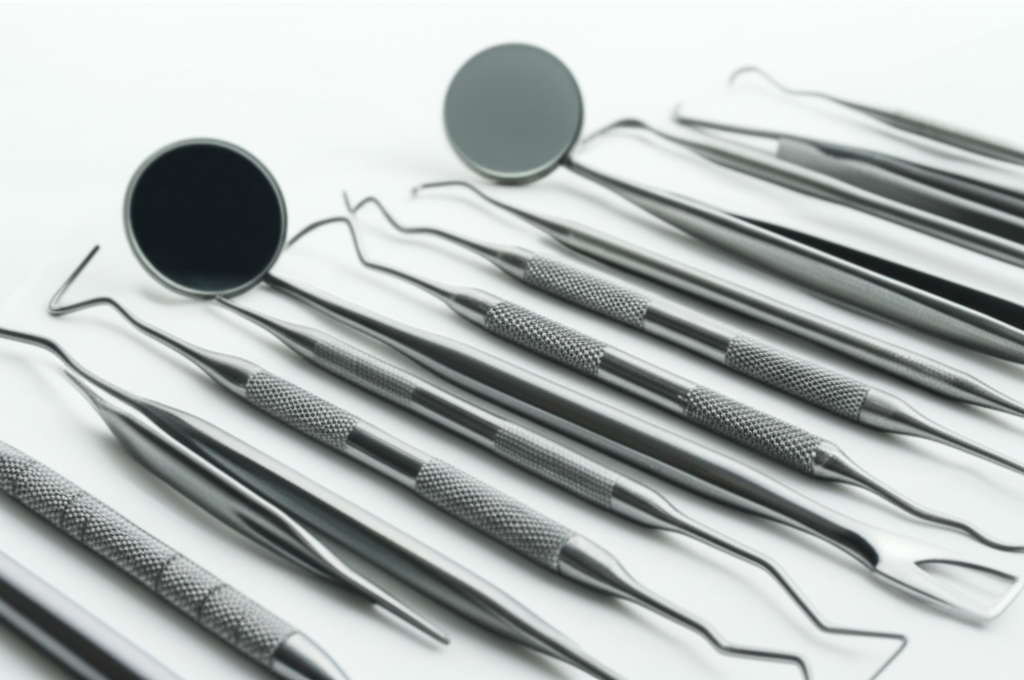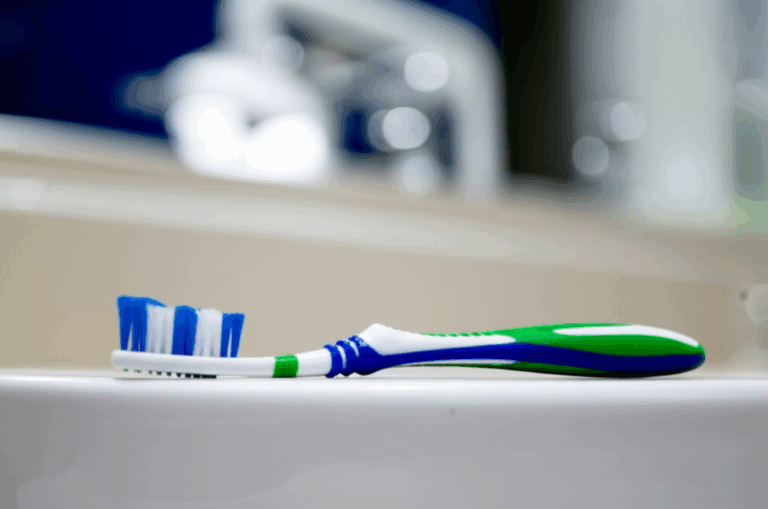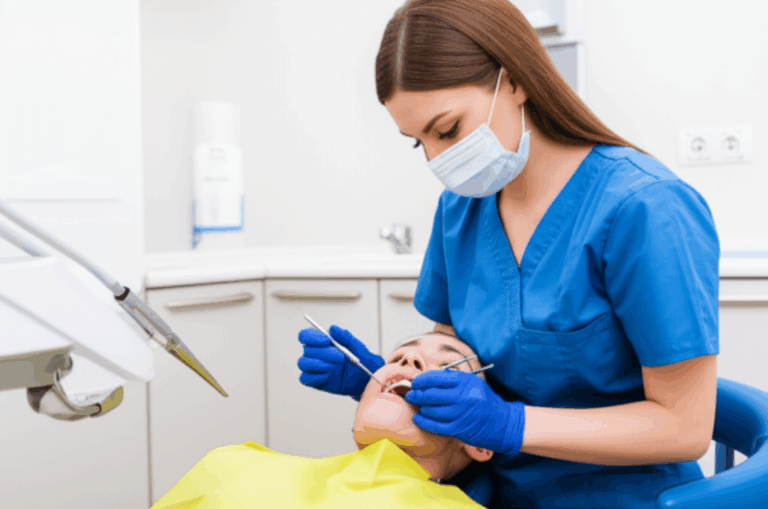
What Are Dentists Called? Understanding Their Professional Titles & Specialties
Have you ever called your dental provider a “tooth doctor,” only to wonder if that’s really the right word? Maybe you’ve seen DDS or DMD after someone’s name and felt a bit mixed up. With so many types of dental workers—orthodontists, hygienists, dental assistants—the world of dentistry can seem like a maze of titles and roles. If you’re looking for a clear, simple answer to “What are dentists called?” and want to know why those names matter, you’re in the right spot.
Let’s break it down together. Whether you’re checking how to talk about your child’s specialist or just curious what makes your dentist a “doctor,” we’ll go through titles, degrees, specialty roles, and more—with less confusion and maybe a smile or two. By the end, you’ll feel sure about how to answer this question for yourself and anyone else who’s ever asked, “Who’s really the boss of my smile?”
What We’ll Cover:
- What Is a Dentist Actually Called?
- Understanding Dental Degrees: DDS vs. DMD
- Are Dentists Real “Doctors”?
- Dental Specialties: The Different Types of Dentists
- Who Else Works in a Dental Office?
- Common Misunderstandings About Dental Titles
- The Takeaway: Taking Care of Your Smile with the Right Team
What Is a Dentist Actually Called?
Let’s get right to it. The most common and correct name for the person who cares for your teeth and mouth is “dentist.” Pretty simple! When you visit a dental office and meet the person checking your teeth, looking for gum problems, or filling a cavity, you’re seeing a dentist.
But that’s not all. Dentists usually have a more formal title. In the United States and Canada, you’ll often notice these after their name:
- DDS: Doctor of Dental Surgery
- DMD: Doctor of Medicine in Dentistry (or Doctor of Dental Medicine)
Both these titles mean a dentist has had tough schooling and training—not just on teeth, but on all parts of the mouth and jaw.
In other places, you might see:
- BDS: Bachelor of Dental Surgery (common in the UK, Australia, and other countries)
So when you get a reminder to see Dr. Jane Smith, DDS, or Dr. Alex Lee, DMD, now you know—they’re not just “tooth doctors.” Their proper name is dentist, and those extra letters show how hard they’ve worked to get here.
Understanding Dental Degrees: DDS vs. DMD
You might have seen these three-letter titles—DDS and DMD—used for dentists. Is there a difference? Do they mean different kinds of dentists?
Short answer: No, they mean the same thing.
The Story Behind the Letters
Both DDS and DMD mean a dentist has learned the same things and can do all the same jobs. It just depends on what their dental school likes to call the degree.
- Doctor of Dental Surgery (DDS): First used by the Baltimore College of Dental Surgery way back in the 1800s.
- Doctor of Medicine in Dentistry (DMD): Named this way by Harvard University, which wanted a name in Latin.
No matter what’s behind their name, all general dentists have spent eight years after high school learning—four years of regular college plus four years of hands-on dental school. They do a lot more than just fill cavities—they learn about the head, neck, jaw, infection control and much more.
Pro Tip: When you choose a new dentist, care more about how they treat people, their skills, and if they have extra training—not if it says DDS or DMD after their name. Both are just as good.
Are Dentists Real “Doctors”?
If you’ve ever asked, “Is my dentist a real doctor?”—you’re not the only one. Lots of people wonder.
Here’s the deal: Dentists are “doctors.” They just work with teeth and mouths, not with the whole body. When you meet Dr. Patel or Dr. Garcia, that “Dr.” is not just for show. Their schooling and license make them real doctors, for teeth and mouth health.
What’s the Difference Between a Doctor and a Dentist?
Both medical doctors (MDs) and dentists (DDS/DMD) go through years of tough school, take big tests, and have to keep learning during their careers. The main difference is what they help with:
- MDs: Take care of the whole body.
- Dentists: Take care of the mouth, teeth, jaws, and all related parts.
So, you’ll visit your normal doctor for a sore throat, but see your dentist for a toothache or even mouth cancer checks.
Most people see dentists as “doctors”—and so do the professional rule books and business standards.
Dental Specialties: The Different Types of Dentists
Just like medicine has different kinds of doctors—like heart doctors or skin doctors—dentistry has special types of dentists too. Here’s a simple guide to who’s who in dental care:
1. Orthodontist
What they do: Make teeth and jaws straight—think braces, clear aligners, or fixing a “bad bite.”
How they get here: Orthodontists start as regular dentists, then study 2–3 more years to learn this special skill. All orthodontists are dentists, but not all dentists are orthodontists.
When you see one: If you need braces or need your bite fixed.
2. Endodontist
What they do: Focus on the inside parts of a tooth, mostly the pulp and doing root canals.
How they get here: More training (usually two or more years) after regular dental school.
Easy way to think of them: Like electricians fixing wires deep inside the wall of a tooth.
3. Periodontist
What they do: Focus on your gums and the bone around teeth; best at treating gum disease and putting in dental implants.
When you see one: If you have gum problems, gums receding, or want implants.
4. Prosthodontist
What they do: Replace and fix teeth using crowns, bridges, dentures, or implants.
Easy to picture: Like builders—they rebuild your smile when teeth are missing or broken.
5. Oral and Maxillofacial Surgeon
What they do: Do surgeries—from wisdom teeth removal to fixing jaws after injuries.
Special note: Some of these specialists have both dental and regular medical degrees.
6. Pediatric Dentist
What they do: Take care of teeth for babies, children, teens—even some adults with special needs.
Fun fact: Pediatric dentists are masters at making kids feel comfortable.
7. Public Health Dentist
What they do: Work on programs and rules to help lots of people have better mouth health—not just one-on-one care.
8. Oral Pathologist
What they do: Use lab tests and tissue samples to find mouth and jaw problems.
9. Oral and Maxillofacial Radiologist
What they do: Look at special pictures (like X-rays or CT scans) of your mouth, jaw, and face to find problems.
10. Dental Anesthesiologist
What they do: Help keep you comfortable and pain-free during tough or long dental procedures by giving anesthesia.
Did You Know?
About 20-25% of dentists in the U.S. train for these special titles after dental school. Most others work as general dentists, helping with a wide mix of dental needs for everyone in the family.
Who Else Works in a Dental Office?
Dentistry is a team job. The dentist is in charge, but there’s a group working together to help you:
Dental Hygienist
Role: Like oral health coaches.
- They clean teeth, take X-rays, put on sealants, and teach you the right way to brush and floss.
- They’re your first helpers against gum disease.
Dental Assistant
Role: The dentist’s main helper.
- They set up tools, hand items to the dentist, take tooth molds, and make sure everyone’s ready and calm.
Easy way to picture: If the dentist is the pilot, the assistant is the co-pilot.
Dental Technician
Role:
You rarely meet them, but they’re busy in the lab making crowns, bridges, dentures, aligners, and more. You’ll find skilled techs in places like china dental lab and dental ceramics lab.
Dental Office Administrator/Receptionist
Role:
They handle booking visits, insurance papers, and greet you at the desk—making sure things run smoothly.
The Dental Care Team
It takes a lot of people to keep your smile healthy. From teaching you about tooth care to making new teeth, every team member has a big role. When you go to a dental office, you’ll meet different members of the “dental care team.”
Common Misunderstandings About Dental Titles
We sometimes hear things that aren’t quite right. Let’s clear up common mistakes:
“Tooth Doctor,” “Mouth Doctor,” “Oral Doctor,” and Other Nicknames:
- “Tooth doctor” is a friendly way kids (and grown-ups) say dentist. The correct term is “dentist.”
- If you hear “oral surgeon” or “gum doctor,” these are oral and maxillofacial surgeons and periodontists. Both are dentists with more training.
DDS/DMD vs. MD:
- Dentists are not “medical doctors” (MDs), but they are real doctors for teeth, mouths, and jaws.
- For any mouth or tooth problems, your dentist is the right expert.
Who “Cleans Teeth”?
- Dental hygienists clean teeth as part of their job, working with dentists to keep your mouth healthy.
Dental Labs: Who Makes Crowns, Implants, and Dentures?
Here’s what happens behind the scenes—dental labs. Dental technicians and lab workers work in special places to make your custom dental pieces.
Examples of Dental Labs:
- Digital dental lab: Uses computers to design and make things like crowns or braces.
- Implant dental laboratories: Make parts for dental implants, which are like roots for new teeth.
- Removable denture labs: Craft dentures that are comfy and look natural when teeth are missing.
Just like your dentist helps during a check-up, you also benefit from the skills of lab techs who make strong, good-looking teeth pieces.
The Simple Science: Why So Many Dentist Titles?
Why doesn’t everyone just get called “dentist?” Here’s why:
- Dental care covers a lot—from checkups to tricky jaw surgery.
- Everyone’s needs are different, so professionals train for years in certain areas.
- The extra words and titles help you know who’s helping you (like which dentist is best for your child, or who can fix serious gum problems).
It’s like sports. Imagine everyone was just a “sports player,” but some swim, some jump, some run. Their official names tell you what they do.
Frequently Asked Questions about Dentists and Their Titles
1. How long does it take to become a dentist?
Usually at least eight years—four years of college, then four more in dental school. To be a specialist (like an orthodontist), add 2–6 more years.
2. Is care different between DDS and DMD?
No difference. Both do the same classes, take the same tests, and have to pass the same licenses.
3. Who do I see for braces, root canals, or implants?
Quick list:
- Braces: Orthodontist.
- Root canal: Endodontist.
- Dental implant: Often periodontist, oral surgeon, or prosthodontist.
- Children’s dental care: Pediatric dentist.
- Checkups/cleaning: General dentist, often with a dental hygienist.
4. Are dental treatments and technicians the same everywhere?
Not always. Some clinics use overseas labs—like a china dental lab—while others use local or advanced 3d dental labs. All labs must meet safety and quality rules.
5. Should I worry about titles when picking a dentist?
It’s more important to look at their skills, experience, reviews, and if they finished extra specialist school for special dental work.
The Takeaway: Your Smile, Your Team
Here’s what to remember:
- Dentist is the normal word for the oral health doctor you visit.
- Their titles—DDS and DMD—mean the same, and both mean a lot of schooling and skill.
- Dentists are real doctors, focused on taking care of your mouth and jaw.
- There are many specialties in dentistry (orthodontists, endodontists, periodontists, and more), each with extra training.
- Dental care is teamwork—hygienists, assistants, techs (from labs like dental ceramics lab or removable denture labs), and front desk workers.
- When you see any of these helpers, you’re with someone who has spent years (even decades) learning and practicing to help you.
How to Take Care of Your Smile
- Meet your team: Get to know who’s who in your dental office. Never be shy to ask about their role or what they studied.
- Stay on schedule: Go to regular dental checkups. Most prevention is handled by your dentist and hygienist.
- Be open about your needs: If you have special dental worries (gum trouble, missing teeth, a kid’s needs), ask your dentist if you need a specialist.
- Ask questions: Knowing what dental titles mean helps you talk with your dental team and make care choices.
Remember—a healthy smile comes from brushing, flossing, and knowing you have a caring team to support you. Next time someone wonders “What are dentists called?” you can give a full answer and maybe share a tip, too.
Quick Facts at a Glance
- Dentist is the main title; they have degrees like DDS or DMD.
- All dentists are “doctors” in their field after lots of studying.
- Specialty dentists include orthodontists, endodontists, periodontists, prosthodontists, and oral surgeons—each with more training.
- Dental care is a team effort: hygienists, assistants, technicians, and more.
- Knowing these names helps you pick the right person, ask the right questions, and keep your smile strong.
Not sure? Just ask your dental team—they’re there to help. After all, they’re not just a “tooth doctor;” they’re your partner in lifelong oral health.
Sources:
- American Dental Association (ADA)
- U.S. Bureau of Labor Statistics
- Health Policy Institute Data
- World Dental Federation
Checked and reviewed by a licensed dental provider. For help with a certain dental issue or to find a local office, check your state dental board or a trusted online practical guide.
Want to know more about dental care choices? Look up more resources on dental labs or talk to your dental team for advice. A healthy, happy smile starts with knowing your team and working together!








